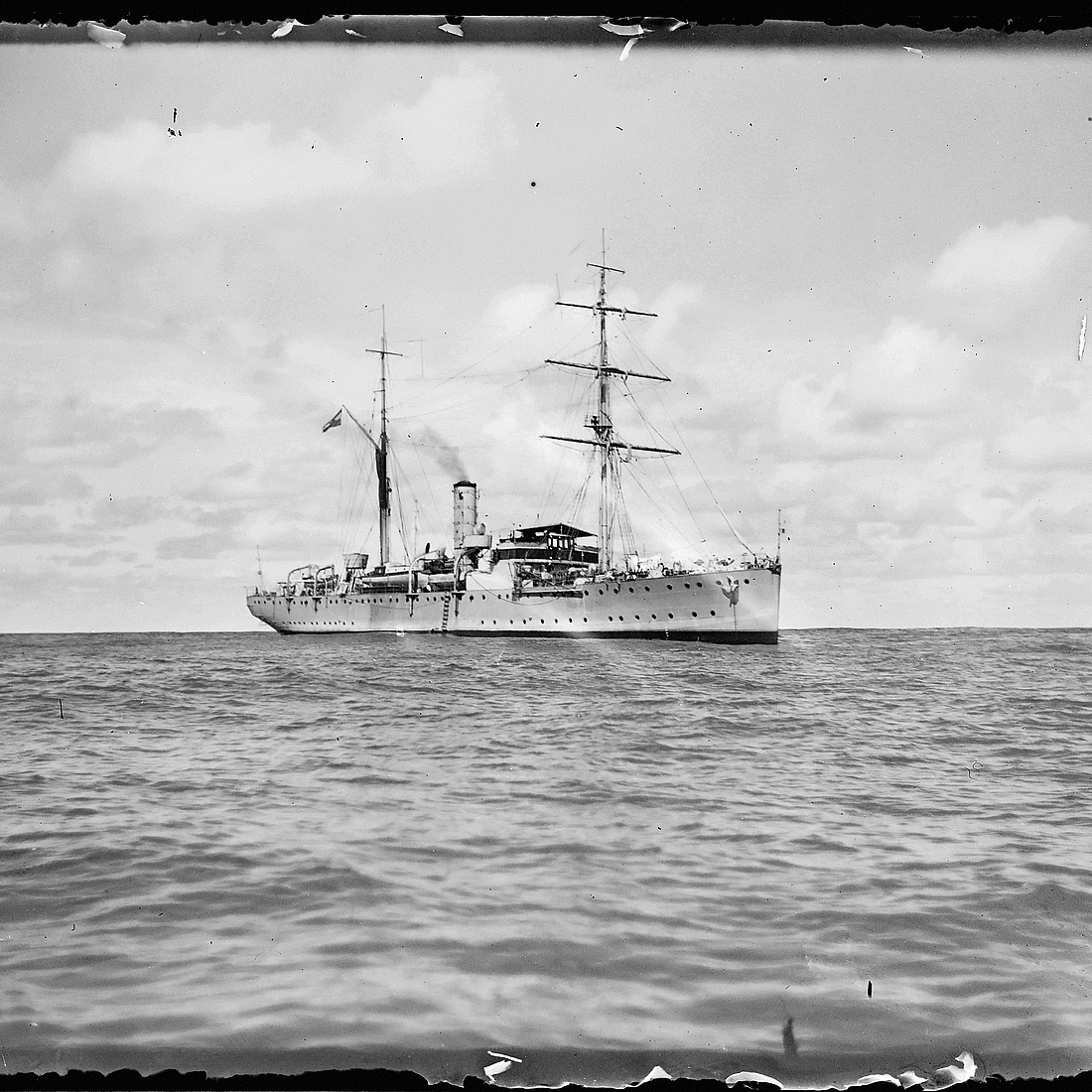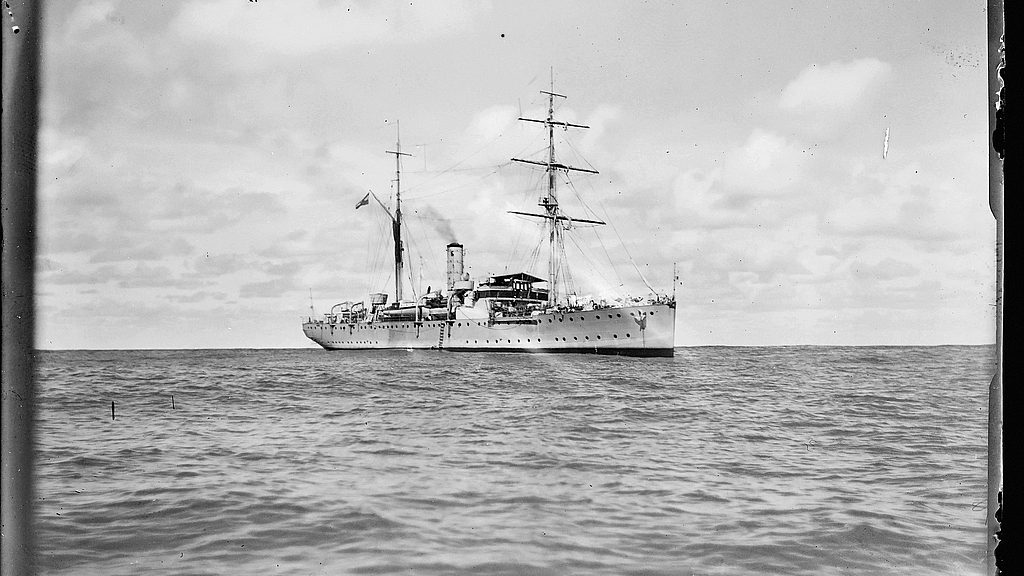Call for Papers: 100 Years Research at Sea. The History of METEOR I
The German Maritime Museum (DSM) / Leibniz Institute of Maritime History in cooperation with the GEOMAR / Helmholtz Centre for Ocean Research Kiel invites you to a symposium on May 15 to 17, 2024 on the topic "100 years of research shipping. The history of the METEOR I". Interested parties can submit papers until March, 18 , 2024.
Wilhelmshaven, April 16, 1925: After several years of extensive preparations, the German research and surveying ship "METEOR" sets sail. The METEOR will be on sea for 777 days and finally return to Wilhelmshaven on June 2, 1927. During these two years, the sailors and scientists on board traveled, explored and surveyed the Atlantic and its depths and shallows. The crew used innovative techniques and methods to measure the deep sea and the atmosphere. The METEOR, equipped with two state-of-the-art echo sounders, put into practice further high-tech gear such as pilot balloons, mirror theodolites and kites soaring 10 km high – and its application kept the crew in constant suspense.
But life on the METEOR was full of tension also with regard to its personnel. Just eleven months into the voyage, the scientific leader of the expedition, Alfred Merz, died in Buenos Aires. Rather unexpectedly, the naval officer and commander of the ship Fritz Spieß then took over the scientific leadership of the expedition. His diary from this time is part of the DSM's collection. It provides information about the challenges on board, the explorations on land and the political landscape of the time. Initial findings from the transcription of the diary will be presented at the symposium and incorporated into the new permanent exhibition on the METEOR. Previously unexplored further evidence of the expedition, which was donated to the German Maritime Museum by GEOMAR in 2022, also includes numerous glass plates with photographs from the research expedition, which will also be discussed at the symposium.
The symposium explores the complex fields of interest that are evident in the METEOR expedition. Its focus is therefore on the history of knowledge and science of the METEOR and the German Atlantic Expedition (1925-1927).
In this context, the relationship between the Reichsmarine and marine research will be discussed, as well as the METEOR's rededication as an original military vessel (planned and built in 1915 as a gunboat) to a research vessel. As a surveying and research vessel, the METEOR sailed almost the entire Atlantic region between 1925 and 1927 and produced relevant research results. How did the national and international scientific community receive these results at the end of the 1920s and what consequences did they have for later oceanography? Furthermore, we would like to discuss the national, geopolitical and colonial entanglements in which the expedition was involved.
Possible topics include:
- The history of the research vessel METEOR 1 and its crew
- Scientific methods of marine research in the 1920s
- Oceanographic research on the METEOR 1
- Media-technical and media-historical perspectives on the technologies and methods applied on board
- National and geopolitical conditions and colonial entanglements in the 1920s and in research shipping
- The subsequent use of the expedition’s research results in various scientific and social areas
The symposium is organized in cooperation with the German Maritime Museum / Leibniz Institute of Maritime History and GEOMAR / Helmholtz Centre for Ocean Research Kiel. The call is aimed at scholars and scientists from the fields of oceanography, blue humanities, history of science, cultural, media and/or historical studies and science and technology studies.
We are looking for submissions that deal with one of the abovementioned topics or demonstrate a further innovative approach to the research expedition of the METEOR 1. Submissions can be submitted in German or English. The language of presentation is German and English. Language skills in German are necessary for active participation.
Travel and accommodation costs for participants without institutional funding will be covered depending on the funds available. A publication based on the conference presentations is planned and will be published in 2025 on the 100th anniversary of METEOR I.
Submissions should include an abstract of the presentation including the title (max. 2500 characters, including spaces) as well as a CV (max. 2 pages) and should be sent as one document (PDF) by March 18, 2024 to Lotte Warnsholdt, l.warnsholdt@dsm.museum. This e-mail address can also be used for all inquiries about the symposium. We look forward to all incoming contributions.
Where: German Maritime Museum / Leibniz Institute of Maritime History, Bremerhaven
When: 16.-17.05.2024
Application deadline: March, 18, 2024
Organization: Lotte Warnsholdt (German Maritime Museum / Leibniz Institute of Maritime History)


